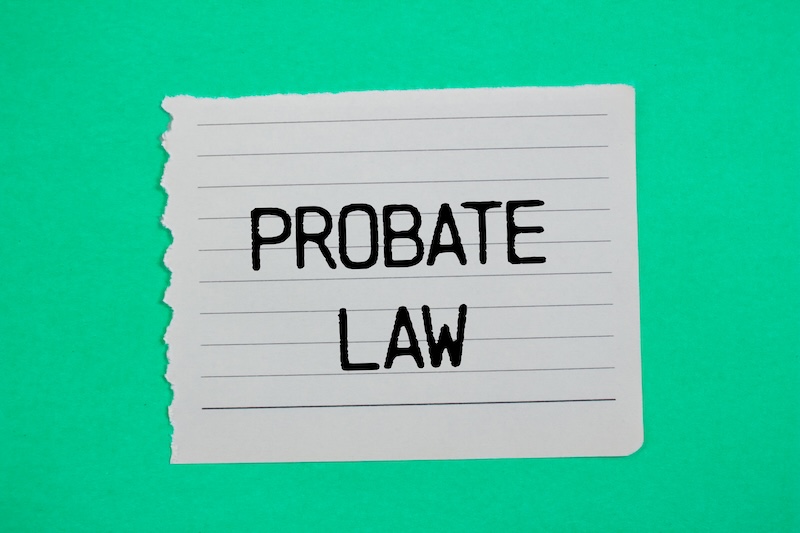 Seamless Estate Planning
Seamless Estate Planning
Many people believe that creating a will is the final step in estate planning. They assume that once a will is signed and stored, their wishes will be carried out effortlessly. Unfortunately, that is a common misconception. A will plays a critical role in your estate plan, but it does not automatically transfer ownership of your assets or avoid court involvement. The truth is that a will alone often leads your family straight into the probate process. In fact, a seamless estate plan eliminates lengthy, costly, and emotionally draining processes.
What a Will Really Does (and What It Doesn’t): Seamless Estate Plans
A will expresses your wishes for how your assets should be distributed after death. It can designate guardians for minor children and name an executor to carry out your instructions. But legally speaking, a will does not transfer title to your assets. Instead, it gives the probate court guidance on how to manage your estate.
The probate process is a court-supervised legal procedure that must validate your will, settle your debts, pay taxes, and finally distribute your remaining assets. Even a well-written will cannot avoid probate. In California, including Walnut Creek and the greater Contra Costa County area, probate can take a year or longer to complete and often involves court fees, appraisal costs, attorney expenses, and other administrative hurdles.
Seamless Estate: Understanding the Probate Process
 When someone passes away with only a will, the estate must go through probate. This process involves several important steps:
When someone passes away with only a will, the estate must go through probate. This process involves several important steps:
-
Validating the Will: The court confirms the document’s authenticity and ensures it meets California legal requirements.
-
Appointing a Personal Representative: Also called an executor, this individual is responsible for managing the estate, often under court supervision.
-
Inventorying Assets: All assets must be identified, appraised, and disclosed to the court.
-
Paying Debts and Taxes: The estate must settle outstanding debts, medical bills, credit card balances, and taxes before beneficiaries receive anything.
-
Distributing Assets: Only after debts are paid and legal obligations are met can the remaining property be distributed to the named heirs.
This process is public, time-consuming, and frequently expensive. In many cases, families must wait months or even years before they can access their inheritance. During that time, they may also face unexpected costs that reduce the estate’s value—sometimes significantly.
The Cost of Delay and Court Intervention
Probate is more than just a legal formality. It can create significant financial and emotional strain on your loved ones. In addition to waiting for court approval at each step, families must deal with ongoing communication from attorneys, appraisers, and government agencies. There are also required public notices and possible challenges from outside parties. All of this can make it difficult for grieving family members to focus on healing.
Even a relatively simple estate in Walnut Creek can face complications, especially if it includes real property, multiple heirs, or unclear instructions in the Will. The very purpose of estate planning—to make things easier for loved ones—is often undermined by the probate process itself.
Why More Families Are Choosing a Revocable Living Trust
 To avoid probate and create a more efficient plan, many California residents are choosing a Revocable Living Trust. Unlike a will, a trust allows assets to pass directly to your beneficiaries without court supervision. It functions as a private, flexible, and powerful estate planning tool.
To avoid probate and create a more efficient plan, many California residents are choosing a Revocable Living Trust. Unlike a will, a trust allows assets to pass directly to your beneficiaries without court supervision. It functions as a private, flexible, and powerful estate planning tool.
When you establish a Revocable Living Trust, you transfer ownership of your assets—including real estate, bank accounts, investments, and personal property—into the trust. During your lifetime, you control and manage the trust as the trustee. You can add or remove assets, change beneficiaries, and even revoke the trust entirely.
Upon your death, a successor trustee—someone you appoint—steps in to manage the trust and distribute your assets according to your instructions. Because the trust owns the assets, there is no need for probate. Your loved ones avoid court delays, legal fees, and unnecessary stress.
Advantages of a Revocable Living Trust
Beyond probate avoidance, a Revocable Living Trust offers a range of benefits that enhance both your lifetime planning and your legacy:
-
Privacy: Wills filed in probate court become public record, but trusts remain private. This means your family’s financial matters and inheritance details stay confidential.
-
Incapacity Planning: A trust includes provisions for managing your assets if you become incapacitated. Your successor trustee can step in without court intervention, avoiding a separate conservatorship proceeding.
-
Faster Distribution: Assets can be distributed as soon as your successor trustee is ready to act—often in weeks instead of months or years.
-
Cost Efficiency: While trusts may cost more to set up initially, they often save money in the long run by avoiding probate-related expenses.
-
Flexibility: You can structure your trust to stagger distributions, fund educational expenses, protect vulnerable beneficiaries, or account for unique family dynamics.
 How a Trust Works in Practice for a Seamless Estate Plan
How a Trust Works in Practice for a Seamless Estate Plan
When your trust is properly funded, assets are titled in the name of the trust. That means your home, for example, would be titled as “John and Jane Smith, Trustees of the Smith Family Trust.” At your death, the successor trustee follows your written instructions without needing court approval.
The transition can be immediate. There is no public notice requirement, no probate calendar, and no risk of delays due to court scheduling. Real estate transfers, account access, and asset management all take place under the authority of the trust. This leads to a smooth and timely settlement of your estate.
Estate Planning Is a Process—Not a One-Time Document
Too many people believe that estate planning is a one-and-done event. But successful estate planning requires an ongoing process that involves careful selection of tools, regular updates, and professional guidance. A will alone may not accomplish your goals. For many individuals and families in Walnut Creek, a trust-based estate plan offers greater peace of mind and security.
Consider the nature of your assets, your family situation, and your long-term goals. Are you concerned about privacy? Do you own real property in multiple states? Would you prefer to avoid court involvement for your loved ones? If so, a Revocable Living Trust may be the best option.
Take Control of Your Estate Plan Today
The journey of estate planning doesn’t end with a Will. In fact, relying solely on a Will often opens the door to court processes that can be avoided. Whether you’re just starting your estate plan or revisiting an older one, now is the time to evaluate whether your plan truly reflects your goals—and whether it protects your family from the burden of probate. A qualified estate planning attorney can help you assess your current documents, identify gaps, and recommend the most effective strategy for your unique needs. Don’t let probate become an uninvited complication. Instead, take proactive steps to simplify your legacy and provide meaningful protection for those you love.
About Walnut Creek Elder Law in Walnut Creek, California
Walnut Creek Elder Law provides compassionate, professional guidance to individuals and families across the East Bay. We help our clients create estate plans that reflect their wishes, avoid probate, and protect their assets. Whether you need help drafting a Revocable Living Trust, updating an existing Will, or navigating the complexities of incapacity planning, we’re here to support you every step of the way. Contact us today to schedule a consultation and take control of your estate planning journey.

